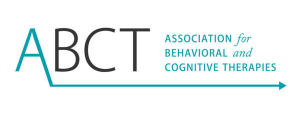Mental Health Treatment, Training and Research
West LA, Pasadena, Claremont
Our team provides comprehensive Dialectical Behavior Therapy (DBT) and other evidence-based treatments to help make positive changes in the lives of children, young adults, and their families.
how we can help
Our Services
Individual Therapy
DBT Skills Training
Parent Coaching
Family Therapy
Neuropsychological Assessment
Executive Functioning Coaching
Training
Consultation
Contact us to schedule a complimentary informational phone call. We will respond within 48 business hours to offer an appointment and provide more details about our practice, services, and rates.
our specialties
What We Treat
Select from the list below for a description of each condition or behavior(s), as well as their corresponding evidence-based treatments.
Anxiety
Depression
Trauma and PTSD
Substance Abuse
Autism Spectrum Disorder
Overcontrol and Perfectionism
Obsessive Compulsive Disorder (OCD)
Borderline Personality Disorder (BPD)
Attention Deficit Hyperactivity Disorder (ADHD)
Suicidal and Non-Suicidal Self-Injurious Behaviors
Anxiety
Anxiety is a cognitive, emotional, and physiological state in which we feel overwhelmed by the possibilities of what might go wrong. Anxiety disorders include persistent, overwhelming worry or fears about situations that we feel we can’t control. Anxiety has a wide range of symptoms and may include phobias, social anxiety, generalized anxiety, testing anxiety, perfectionism, OCD, and panic attacks.
Evidence based treatments for anxiety:
- Cognitive Behavioral Therapy (CBT)
- Acceptance and Commitment Therapy (ACT)
- Prolonged Exposure (PE)
- Cognitive Processing Therapy (CPT)
- Mindfulness Based Treatments
Depression
Depression is a condition with persistent feelings of intense sadness, shame, low-self esteem, low energy, irritability, isolation, and a lack of motivation or pleasure from life. These symptoms are often present daily, even when there isn’t an obvious event prompting sadness or shame. Individuals experiencing depression may have difficulty sleeping (i.e. sleeping too much or too little), and have periods in which they feel emotionally “numb”.
Evidence based treatments for depression:
- Cognitive Behavioral Therapy (CBT)
- Acceptance and Commitment Therapy (ACT)
- Behavioral Activation (BA)
- Dialectical Behavior Therapy (DBT)
Trauma and PTSD
Trauma is the psychological, physiological, and emotional response to an event or chain of events that are deeply distressing and painful. The emotions related to trauma are highly distressing and continue to be present even after the event has taken place. In the case of Post-Traumatic Stress Disorder, distress and memories associated with the disturbing event are ever-present and regularly resurface.
Evidence based treatments for PTSD:
- Prolonged Exposure
- Cognitive Reprocessing Therapy (CPT)
- DBT Prolonged Exposure Therapy (DBT-PE; Melanie Harned)
- DBT-PTSD (Martin Bohus)
Substance Abuse
Substance use disorders (SUDs) are characterized by regular use of drugs or substances, an inability to regulate substance use, experiencing intense cravings, engaging in risky behaviors, and an inability to stop using the substance even when there are negative consequences in multiple areas of life. Individuals with substance use disorders may find it very difficult to quit, either because of the effects while they are on the drug, or withdrawal symptoms when they are off it. While addiction is partly a physiological state, there are a number of effective treatments available.
Evidence based treatments for SUD:
- Motivational Interviewing (MI)
- Mindfulness Based Interventions
- Contingency Management
- Cognitive Behavioral Therapy (CBT)
- Dialectical Behavioral Therapy (DBT)
Autism Spectrum Disorder
Autism Spectrum Disorder (ASD) is a neurological condition in which individuals experience the world in a different way, and, as a result, may have difficulty navigating our society. Individuals on the autism spectrum may experience difficulty in social situations (interpreting social cues, maintaining eye contact, social communication, etc), restrictive or repetitive behaviors, rigid thinking patterns, preferences for clearly delineated rules, or sensory overload.
Evidence based treatments for ASD:
- Applied Behavior Analysis (ABA)
- Parent Child Interactive Therapy (PCIT)
Overcontrol and Perfectionism
Individuals with perfectionism and over-controlling tendencies often set very high standards and goals for themselves, and experience distress when they don’t meet those expectations. They may base their self-worth on their achievement and punish themselves when they “fall short”. While failure is normal and can teach us a lot about ourselves and the world, perfectionism and over-control prevent individuals from allowing failure in their lives.
Evidence based treatments for perfectionism:
- Radically Open DBT (RO-DBT)
- Acceptance and Commitment Therapy (ACT)
- Mindfulness and Self-compassion Training
Obsessive Compulsive Disorder (OCD)
OCD is characterized by the presence of obsessions (unwanted thoughts, images, or urges that cause emotional distress) and compulsions (behaviors that reduce the emotional distress caused by obsessions). This creates a cycle of repetitive behaviors meant to neutralize discomfort, but that the individual feels they have little control over and that often interfere with daily life.
Evidence based treatments for OCD:
- Exposure and Response Prevention (ERP)
- Acceptance and Commitment Therapy (ACT)
Borderline Personality Disorder (BPD)
BPD is a disorder characterized by dysregulation in several of the following areas: emotion dysregulation (intense emotions that are difficult to regulate), behavioral dysregulation (impulsive behaviors), interpersonal dysregulation (difficulty maintaining relationships), intrapersonal dysregulation (trouble with identity or knowing “who you are''), and cognitive dysregulation (chaotic thoughts, dissociation). Emotion dysregulation is especially present in BPD, and individuals with BPD often experience frequent, intense, long lasting emotions.
BPD is a disorder characterized by dysregulation in several of the following areas: emotion dysregulation (intense emotions that are difficult to regulate), behavioral dysregulation (impulsive behaviors), interpersonal dysregulation (difficulty maintaining relationships), intrapersonal dysregulation (trouble with identity or knowing “who you are''), and cognitive dysregulation (chaotic thoughts, dissociation). Emotion dysregulation is especially present in BPD, and individuals with BPD often experience frequent, intense, long lasting emotions.
- Dialectical Behavioral Therapy (DBT)
- Mentalization-based therapy (MBT)
Attention Deficit Hyperactivity Disorder (ADHD)
ADHD is a neurological condition characterized by difficulties with maintaining and controlling attention, impulsivity, and hyperactivity. Individuals with ADHD may have difficulty with restlessness, organization, listening to instructions, task management, memory (forgetting appointments, trains of thought, projects, etc), time management, and completing tasks. These symptoms can impact an individual’s work, school, and relationships, and often emerge in childhood and adolescence.
Evidence based treatments for ADHD:
- Executive Functioning Training
- Mindfulness Training
Suicidal and Non-Suicidal Self-Injurious Behaviors
Suicidality includes thoughts, urges, and attempts to take one’s own life. Non-Suicidal Self-Injurious Behavior (NSIB) is causing deliberate, self-inflicted, physical injuries without the intent to die. Individuals take part in NSIB for a variety of reasons, including as self-punishment, distraction, or to decrease feelings of numbness. Both Suicidal and Non-Suicidal Self-Injurious Behaviors can be treated. Services such as DBT and CAMS show that there are countless ways to improve life and diminish pain without harming oneself, and equip patients with skills to help them build their life worth living.
Evidence based treatments for suicidality and NSSI:
- Dialectical Behavioral Therapy (DBT)
- Collaborative Assessment and Management of Suicidality (CAMS).
our specialties
What We Treat
Select from the list below for a description of each condition or behavior(s), as well as their corresponding evidence-based treatments.
Anxiety
Anxiety is a cognitive, emotional, and physiological state in which we feel overwhelmed by the possibilities of what might go wrong. Anxiety disorders include persistent, overwhelming worry or fears about situations that we feel we can’t control. Anxiety has a wide range of symptoms and may include phobias, social anxiety, generalized anxiety, testing anxiety, perfectionism, OCD, and panic attacks.
Evidence based treatments for anxiety:
- Cognitive Behavioral Therapy (CBT)
- Acceptance and Commitment Therapy (ACT)
- Prolonged Exposure (PE)
- Cognitive Processing Therapy (CPT)
- Mindfulness Based Treatments
Depression
Depression is a condition with persistent feelings of intense sadness, shame, low-self esteem, low energy, irritability, isolation, and a lack of motivation or pleasure from life. These symptoms are often present daily, even when there isn’t an obvious event prompting sadness or shame. Individuals experiencing depression may have difficulty sleeping (i.e. sleeping too much or too little), and have periods in which they feel emotionally “numb”.
Evidence based treatments for depression:
- Cognitive Behavioral Therapy (CBT)
- Acceptance and Commitment Therapy (ACT)
- Behavioral Activation (BA)
- Dialectical Behavior Therapy (DBT)
Trauma and PTSD
Trauma is the psychological, physiological, and emotional response to an event or chain of events that are deeply distressing and painful. The emotions related to trauma are highly distressing and continue to be present even after the event has taken place. In the case of Post-Traumatic Stress Disorder, distress and memories associated with the disturbing event are ever-present and regularly resurface.
Evidence based treatments for PTSD:
- Prolonged Exposure
- Cognitive Reprocessing Therapy (CPT)
- DBT Prolonged Exposure Therapy (DBT-PE; Melanie Harned)
- DBT-PTSD (Martin Bohus)
Substance Abuse
Substance use disorders (SUDs) are characterized by regular use of drugs or substances, an inability to regulate substance use, experiencing intense cravings, engaging in risky behaviors, and an inability to stop using the substance even when there are negative consequences in multiple areas of life. Individuals with substance use disorders may find it very difficult to quit, either because of the effects while they are on the drug, or withdrawal symptoms when they are off it. While addiction is partly a physiological state, there are a number of effective treatments available.
Evidence based treatments for SUD:
- Motivational Interviewing (MI)
- Mindfulness Based Interventions
- Contingency Management
- Cognitive Behavioral Therapy (CBT)
- Dialectical Behavioral Therapy (DBT)
Autism Spectrum Disorder
Autism Spectrum Disorder (ASD) is a neurological condition in which individuals experience the world in a different way, and, as a result, may have difficulty navigating our society. Individuals on the autism spectrum may experience difficulty in social situations (interpreting social cues, maintaining eye contact, social communication, etc), restrictive or repetitive behaviors, rigid thinking patterns, preferences for clearly delineated rules, or sensory overload.
Evidence based treatments for ASD:
- Applied Behavior Analysis (ABA)
- Parent Child Interactive Therapy (PCIT)
Overcontrol and Perfectionism
Individuals with perfectionism and over-controlling tendencies often set very high standards and goals for themselves, and experience distress when they don’t meet those expectations. They may base their self-worth on their achievement and punish themselves when they “fall short”. While failure is normal and can teach us a lot about ourselves and the world, perfectionism and over-control prevent individuals from allowing failure in their lives.
Evidence based treatments for perfectionism:
- Radically Open DBT (RO-DBT)
- Acceptance and Commitment Therapy (ACT)
- Mindfulness and Self-compassion Training
Obsessive Compulsive Disorder (OCD)
OCD is characterized by the presence of obsessions (unwanted thoughts, images, or urges that cause emotional distress) and compulsions (behaviors that reduce the emotional distress caused by obsessions). This creates a cycle of repetitive behaviors meant to neutralize discomfort, but that the individual feels they have little control over and that often interfere with daily life.
Evidence based treatments for OCD:
- Exposure and Response Prevention (ERP)
- Acceptance and Commitment Therapy (ACT)
Borderline Personality Disorder (BPD)
BPD is a disorder characterized by dysregulation in several of the following areas: emotion dysregulation (intense emotions that are difficult to regulate), behavioral dysregulation (impulsive behaviors), interpersonal dysregulation (difficulty maintaining relationships), intrapersonal dysregulation (trouble with identity or knowing “who you are''), and cognitive dysregulation (chaotic thoughts, dissociation). Emotion dysregulation is especially present in BPD, and individuals with BPD often experience frequent, intense, long lasting emotions.
BPD is a disorder characterized by dysregulation in several of the following areas: emotion dysregulation (intense emotions that are difficult to regulate), behavioral dysregulation (impulsive behaviors), interpersonal dysregulation (difficulty maintaining relationships), intrapersonal dysregulation (trouble with identity or knowing “who you are''), and cognitive dysregulation (chaotic thoughts, dissociation). Emotion dysregulation is especially present in BPD, and individuals with BPD often experience frequent, intense, long lasting emotions.
- Dialectical Behavioral Therapy (DBT)
- Mentalization-based therapy (MBT)
Attention Deficit Hyperactivity Disorder (ADHD)
ADHD is a neurological condition characterized by difficulties with maintaining and controlling attention, impulsivity, and hyperactivity. Individuals with ADHD may have difficulty with restlessness, organization, listening to instructions, task management, memory (forgetting appointments, trains of thought, projects, etc), time management, and completing tasks. These symptoms can impact an individual’s work, school, and relationships, and often emerge in childhood and adolescence.
Evidence based treatments for ADHD:
- Executive Functioning Training
- Mindfulness Training
Suicidal and Non-Suicidal Self-Injurious Behaviors
Suicidality includes thoughts, urges, and attempts to take one’s own life. Non-Suicidal Self-Injurious Behavior (NSIB) is causing deliberate, self-inflicted, physical injuries without the intent to die. Individuals take part in NSIB for a variety of reasons, including as self-punishment, distraction, or to decrease feelings of numbness. Both Suicidal and Non-Suicidal Self-Injurious Behaviors can be treated. Services such as DBT and CAMS show that there are countless ways to improve life and diminish pain without harming oneself, and equip patients with skills to help them build their life worth living.
Evidence based treatments for suicidality and NSSI:
- Dialectical Behavioral Therapy (DBT)
- Collaborative Assessment and Management of Suicidality (CAMS).
OUR COMMUNITY
Meet Our Team
Members Of








What we Provide
Our Approach
We provide state-of-the-art cognitive behavioral therapies (CBTs), including Acceptance and Commitment Therapy (ACT), Behavioral Activation (BA), Mindfulness Based Stress Reduction (MBSR), Exposure and Response Prevention (ERP) and other evidence based interventions to help improve our clients’ mental health and quality of life. Most of our therapists are also scholars, actively contributing to the research base supporting the efficacy of these interventions. We specialize in Dialectical Behavior Therapy (DBT). Dr. Marcus Rodriguez leads the DBT team at YFI with consultation from Vibh Forsythe Cox, PhD. He is the only Behavioral Tech (BTECH) instructor and consultant in the greater Los Angeles metropolitan area. BTECH is the training company founded by Dr. Marsha Linehan for the dissemination of DBT.
our intake process
How to Get Started
Contact Us
Contact us to inquire about services or to schedule a complimentary 15-minute informational phone call with our practice manager.
Schedule a Call
During our phone call, we will gather information about the patient and provide details about our practice, services, and rates.
Meet for Consultation
Complete intake paperwork prior to scheduling an initial 60-minute assessment and consultation session with our clinical director.
Receive Treatment Plan
Our clinical director will determine individualized treatment recommendations and identify the best provider match(es).
Contact Us
Los Angeles Area Resources
Free Resources
Growing list of ideas for activities (nature, art, social, volunteering, etc.), and ideas for getting active, which is also an important part of feeling better.
Our team provides comprehensive DBT and other evidence-based treatments to help make positive changes in the lives of children, young adults, and their families.
Quick Links
Contact Info
- info@yfinstitute.com
- (323) 800-8883
- 1849 Sawtelle Blvd, Suite 610, Los Angeles CA 90025
- 250 W 1st St, Suite 242, Claremont, CA 91711
- 595 E Colorado Blvd STE 205, Pasadena, CA 91101
Copyright © 2023. All Rights Reserved.















